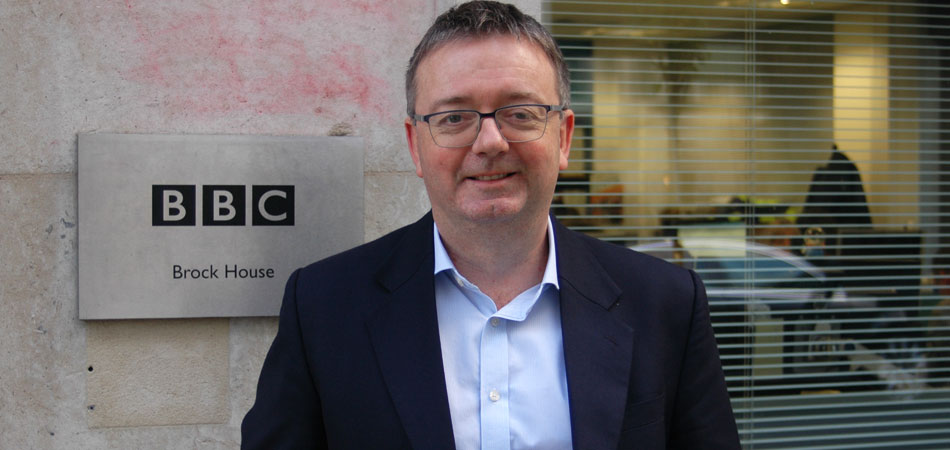
How can brands use music to overcome generational tensions?
Joanna Barnett, Strategy Director at Truant, on the power of music to bring people closer together and broaden a brand’s appeal.
Director of Marketing and Audiences at the BBC


Tom Holmes talks to Philip Almond, Director of Marketing and Audiences at the BBC.
Philip joined the BBC in June 2012 having previously worked at Diageo with responsibility for various brands including Baileys and Smirnoff. Whilst at Diageo, he oversaw the launch of Smirnoff Ice and spent two years as Marketing Director of Burger King (then owned by Diageo). Prior to that, Philip worked at Ogilvy & Mather.
Philip Almond: Being the voice of audiences within the BBC, and the voice of the BBC to its audiences.
The primary role the teams I lead at the BBC is to ensure the BBC’s brilliant content meets everyone in the UK’s needs, and to make sure all of us know about and can discover the old favourites and new shows we love across Radio, TV and online.
Philip Almond: Just like any media owner, the biggest challenges for the BBC is to shift over time from a broadcast, “one to many” model, to a more personalised IP-based offer where we have a two-way & more individual relationship with our audiences.
This is a fundamental shift which will ultimately affect everything we do – but we need to do this while still operating the traditional broadcast model, which is how the vast majority of our audience still access the BBC today.
Philip Almond: Yes – it’s called myBBC, and it’s a joint project with our Future Media & editorial teams looking at how we can make people’s experience of the BBC more personal. Importantly it’s not just a technology-led project – ultimately it should transform people’s relationship with the BBC and the way we make and serve content for – and even with – them. So we become less “the BBC” and more “my BBC” and “our BBC”.
Philip Almond: We’re doing our jobs in the period of greatest change in media since the advent of television, and the nature of that change is more rapid, diverse and multi-faceted than the broadcast revolution was. No-one knows precisely what the future holds.
So while the core CMO skills – audience insight, strategic clarity, creative flair, executional integration, leadership – are as relevant as ever, we need to be more flexible and prepared to adapt at pace than ever before.There’s too much uncertainty to write the perfect 3 year strategy. We need to set a clear audience-facing direction for our businesses – but rapidly experiment and learn about the way we actually get there.
Philip Almond: Our job is to use audience insight and creativity to create a piece of marketing technology – be that and, a new product or service, a CRM programme – that fundamentally changes the trajectory of the brand or business we work on.
I’m proudest of the work that’s done that – as most of my career was at Diageo many of the examples are, from the launch of Smirnoff Ice, to the Smirnoff Experience marketing programme to returning the Diageo GB and Baileys businesses to growth.
I’m also immensely proud of the work my teams are currently doing at the BBC – from our recent work on BBC Music and Drama to how we are changing the way our Audience Services team responds to people’s enquiries at the BBC. There’s so much great work going on its impossible to mention it all!
Philip Almond: I was on the panel for the Marketing Society awards this year – it’s a great way to get closer to the best work in the industry. The work that stood out for me there was the launch of BT Sport, the way easyJet has re-positioned itself, and the John Lewis work. All big bets, based on insight, delivered with flair which have fundamentally altered perceptions and performance of their brand.
Philip Almond: You should take inspiration from wherever you can. No-one has a monopoly on ideas or creativity. And as a colleague at Diageo used to remind me – “Well stolen is better than ill-conceived”.
Philip Almond: It’s horses for courses – it entirely depends on what the task is, and what your brand needs. But my experience has been that if you need best in class in a particular discipline, go to an agency that specialises in that.
Philip Almond: Keeping my eyes open, talking to colleagues, reading the marketing/advertising press, occasionally sitting on award panels and networking.
Philip Almond: As the BBC is publicly funded, the timing of roster reviews is ultimately determined by legislation and the OJEU procurement process – we have to do a full review every few years.
Philip Almond: Traditional pitches are time consuming and expensive for all concerned and should only be taken on when fundamentally necessary. But if you really are at an inflection point for your brand or your agency relationship, if properly run they can be valuable. Only do them when there is no alternative – and if you do, be prepared to invest the time and energy to ensure you do it only once, and well.
Philip Almond: To have played my part in ensuring the BBC continues to inform, educate, entertain – and even inspire – us all as much in the IP future as it has in the broadcast era.
Looks like you need to create a Creativebrief account to perform this action.
Create account Sign inLooks like you need to create a Creativebrief account to perform this action.
Create account Sign in